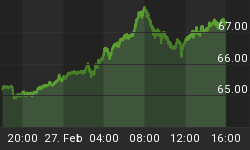The government rebates are coming: Quick, hide from the bill collectors! Creditors and debt collectors alike can smell the money a mile away, and they're mighty hungry. Some debt collectors resemble sharks who want to take a big bite, while others are like mosquitoes who quietly feast. But many more are like leeches attaching to prey until they're full, and their victims have been sucked dry.
There is a mountain of consumer debt out there, and debt collectors are hoping for a big chunk, if not all, of that little rebate check. But it's not just the collection agencies that want my rebate. My wallet was pick-pocketed at the gas station on the way to the supermarket, where I was seriously mugged at the checkout counter. I noticed the grocery store was running its famous "one for the price of two" sale as I raced around looking for a bag of rice, only to discover I was too late because the Asian peasants beat me to it. So I decided to invest my rebate money into cans of tuna, instead. (I figured that with the oceans getting fished out, and the price of tin and steel up 100 percent, I had two ways to win on that one.) As I was leaving the store, it dawned on me that the cost of living really is going up, and many of my neighbors are struggling.
For the 30 percent of families that are in tough shape, they may be better off not answering the phone at all. As we dodge creditor sharks, use mosquito repellant to swat the annoying pests, and pull blood sucking debt collection leeches off our backs, a record 28 million of us will continue to survive on food stamps! But with an inexpensive labor force (particularly in India) coupled with automatic dialers, collectors on commission will be making as many calls as possible this summer to keep our phones ringing at all hours of the day.
While some debt collectors may get lucky picking pockets for rebates, don't expect the rebates to boost economic growth anytime soon. The $110 billion in rebates are likely to be split equally between debt repayment, savings, and spending. Consumers currently owe about $11 trillion in mortgage debt, and $2.5 trillion in consumer debt (credit card delinquencies and defaults are pushing eight percent). Throwing $40 billion into the debt repayment pot is small by comparison. For economic spending, $40 billion in a $14 Trillion economy is just a statistical "rounding error." The net effect is something like pouring a glass of water on the hot desert sand and before you can blink, it's gone. Maybe the wise thing to do will be to use the rebate to file for bankruptcy!
For every check issued, there are 10 or more people holding their hand out for it. This year you will get butchered at the butcher shop because of the price of beef, and burned at the bakery. Grain is so expensive, even the French middle class can't afford a baguette any more. For the average American, this rebate check represents only one car, credit card, or partial mortgage payment. When you consider it cost well over $60 now to fill up the gas tank for a mid-sized car, and a lot more to go out to eat, it won't go very far.
On the household front, millions of homeowners haven't even finished paying their heating bills from last winter, and over six million Americans asked for energy assistance funds so their power wouldn't be shut off. (In California alone, 1.7 million households are behind on their utility payments.)
Signs of the stretched consumer include the following stunning facts:
-
Home equity loans have a seven percent delinquency;
-
Subprime mortgages, past due over 60 days, are pushing 14 percent;
-
Over one million homes are in foreclosure and three million more are empty, and up for sale;
-
Ten million homes have mortgage balances greater than their value. (No wonder some homeowners are walking away from them);
-
In the auto market, 25 percent of all car loans are higher than the car is worth. (The average balance these cars are underwater for is $4,300!)
Jobs are also falling off a cliff. If it hadn't been for the Birth Death computer model at the BLS creating service jobs out of thin air, the payroll data would have shown over 280,000 people actually lost their jobs in April. Currently, 2.7 million workers have exhausted their unemployment benefits, and with no job prospects or income, hello collector!
I should take comfort that with a big election coming in November, incumbent politicians want to buy my vote for $600, and pay for my vote with my money! However, it seems to me that in order to keep up with the rising cost of living and debt service, we'll need an extra $600 every month for many months. Perhaps Americans are rich enough to pay themselves the trillion dollars or more we need to keep spending.















